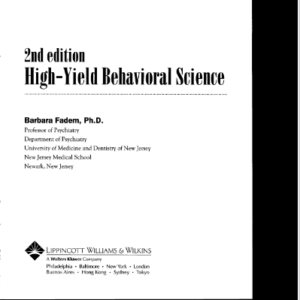
Psychological insulin resistance and its impact on self management in type II diabetes mellitus patients treated with insulin therapy
Key Points:
- Psychological insulin resistance leads to reluctance or refusal to initiate and adhere to insulin therapy.
- Factors such as fear of injections, misconceptions about insulin, and emotional distress hinder self-management.
- Addressing PIR through education and psychological support can improve adherence and overall diabetes management.
Description
This study explores psychological insulin resistance (PIR) in Type II diabetes mellitus patients undergoing insulin therapy, examining its impact on self-management behaviors. It highlights the barriers patients face and the consequences on glycemic control and treatment adherence.





Reviews
There are no reviews yet.